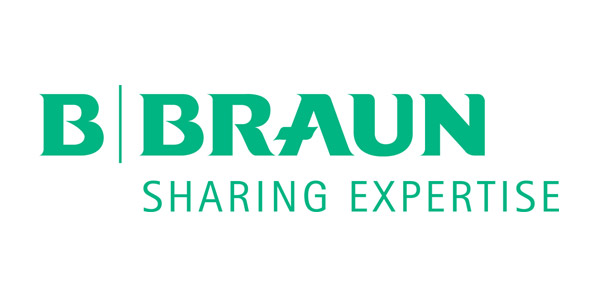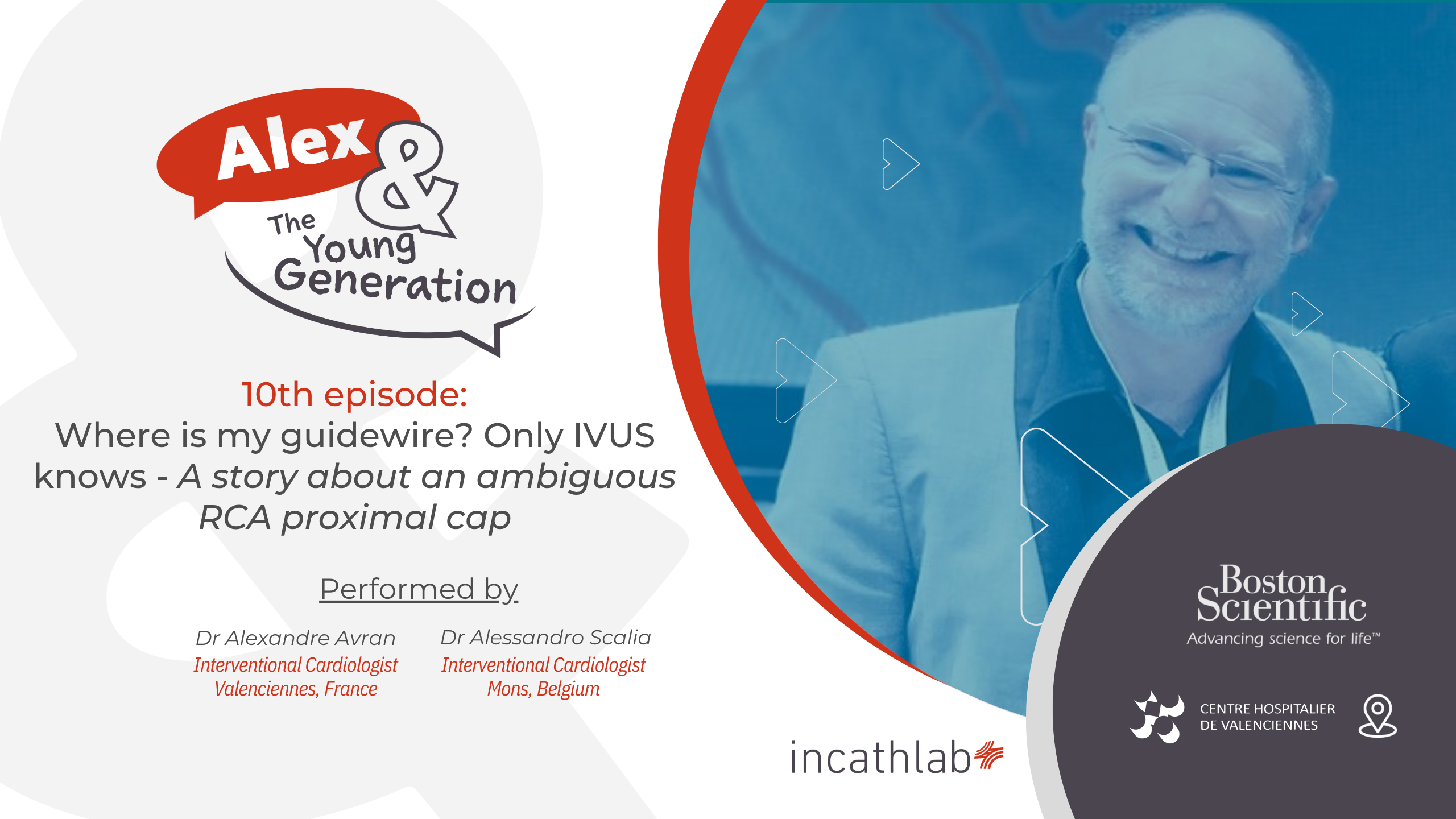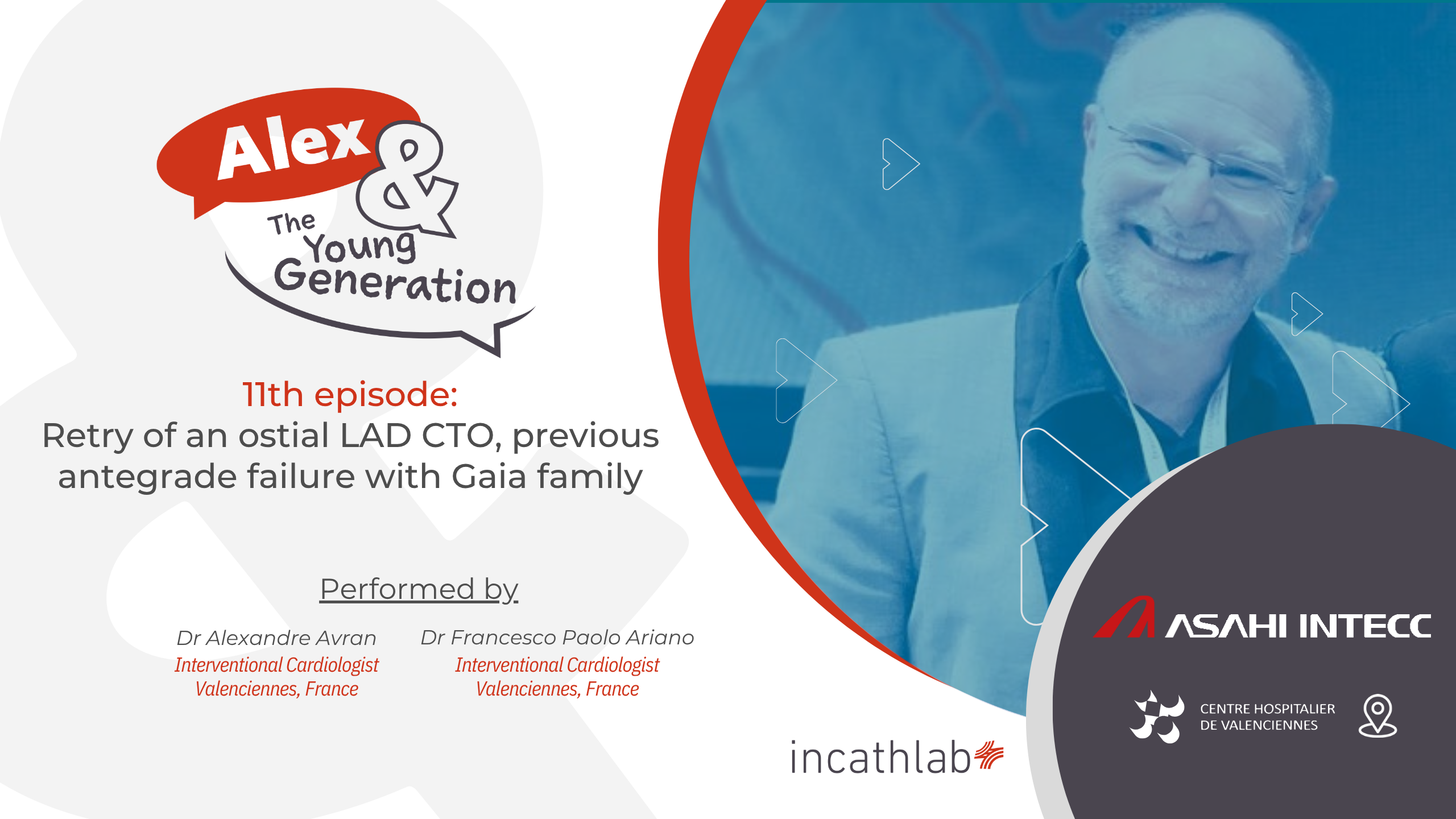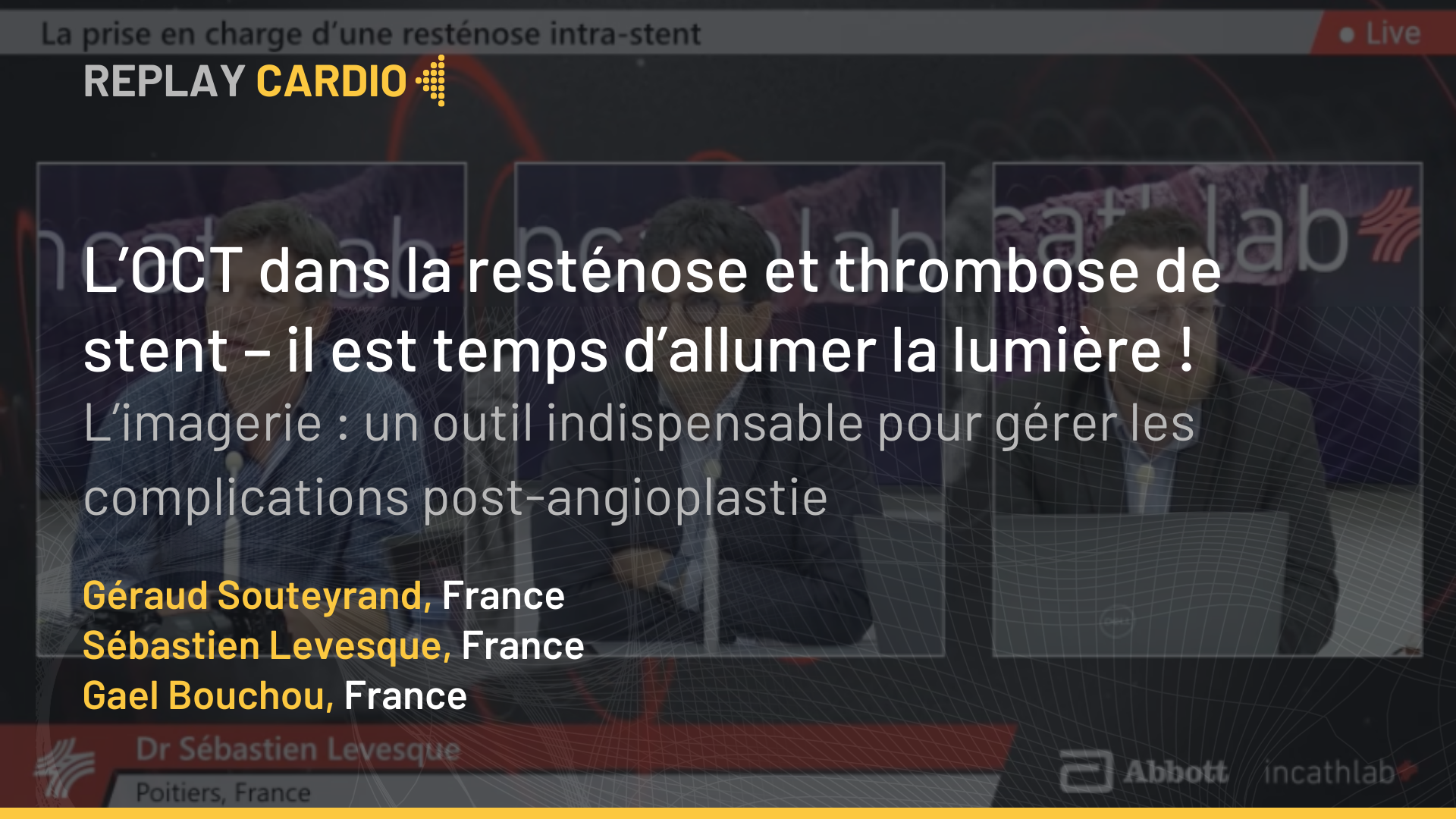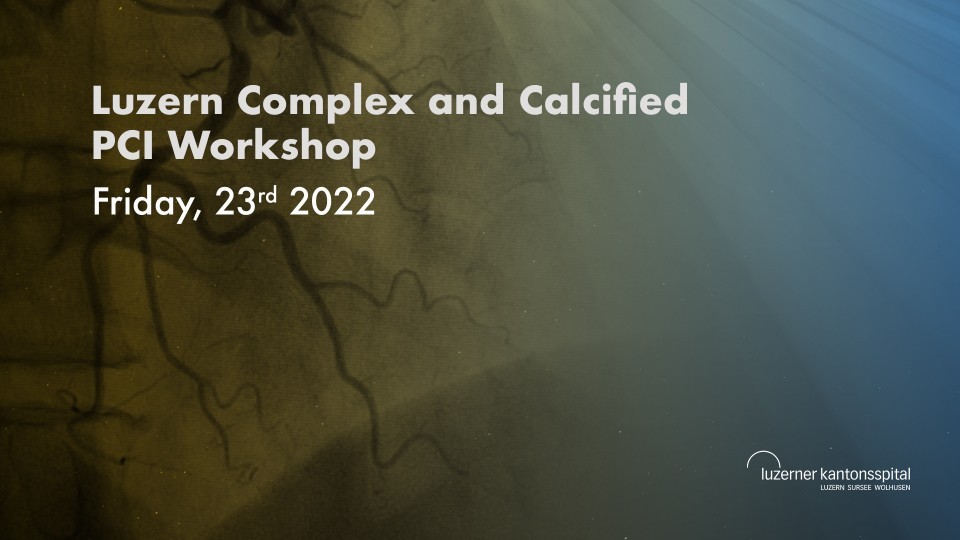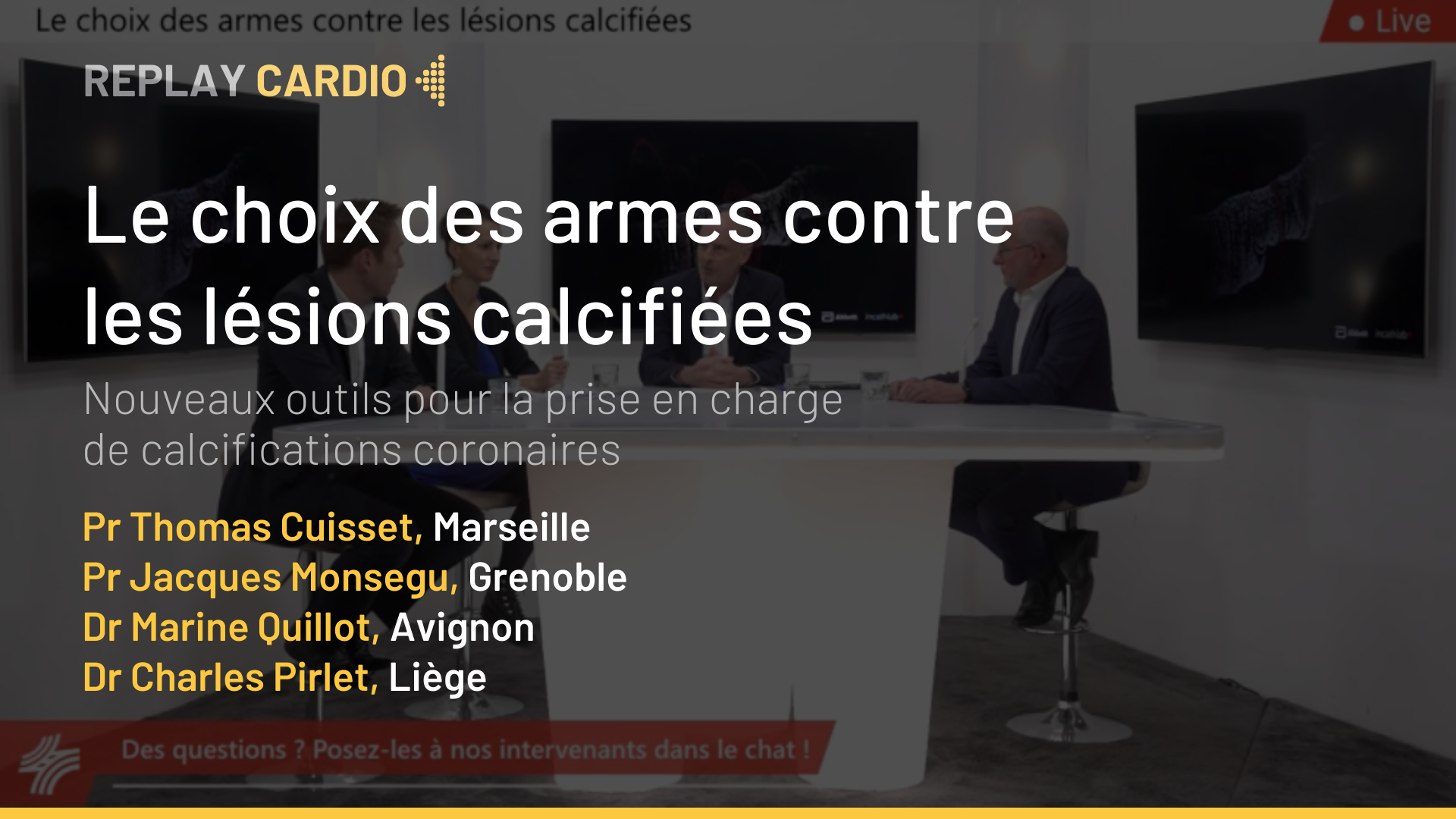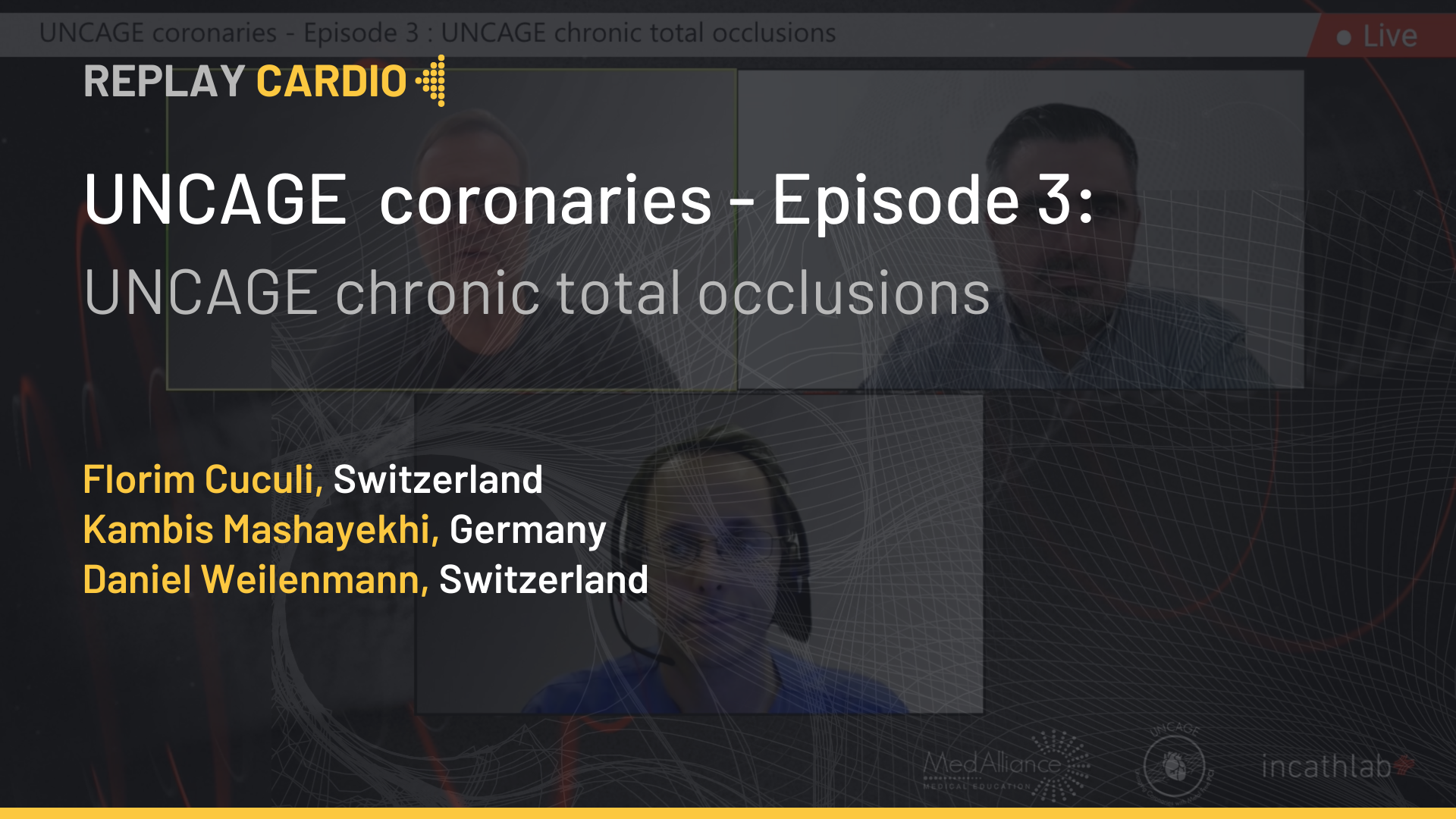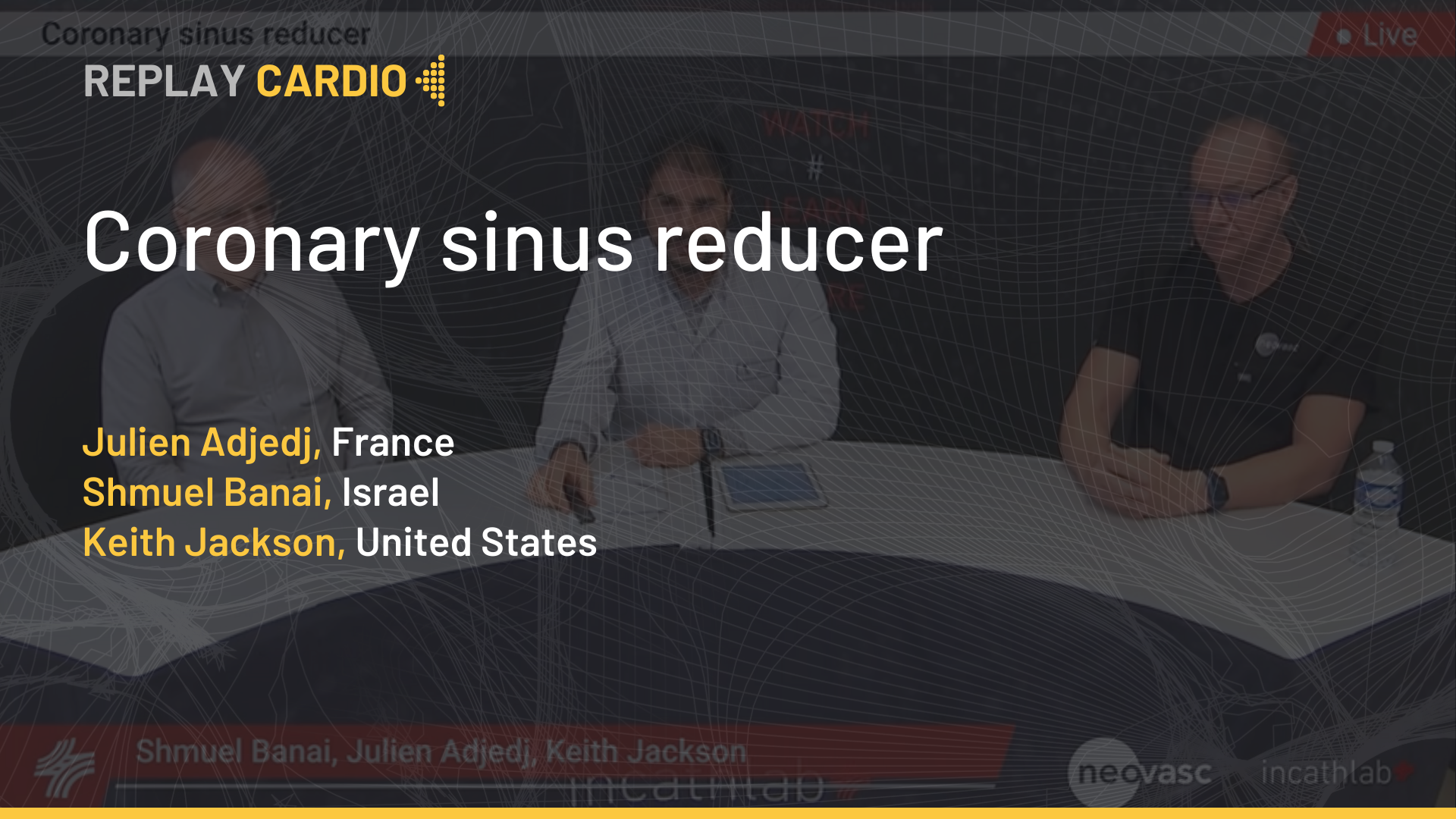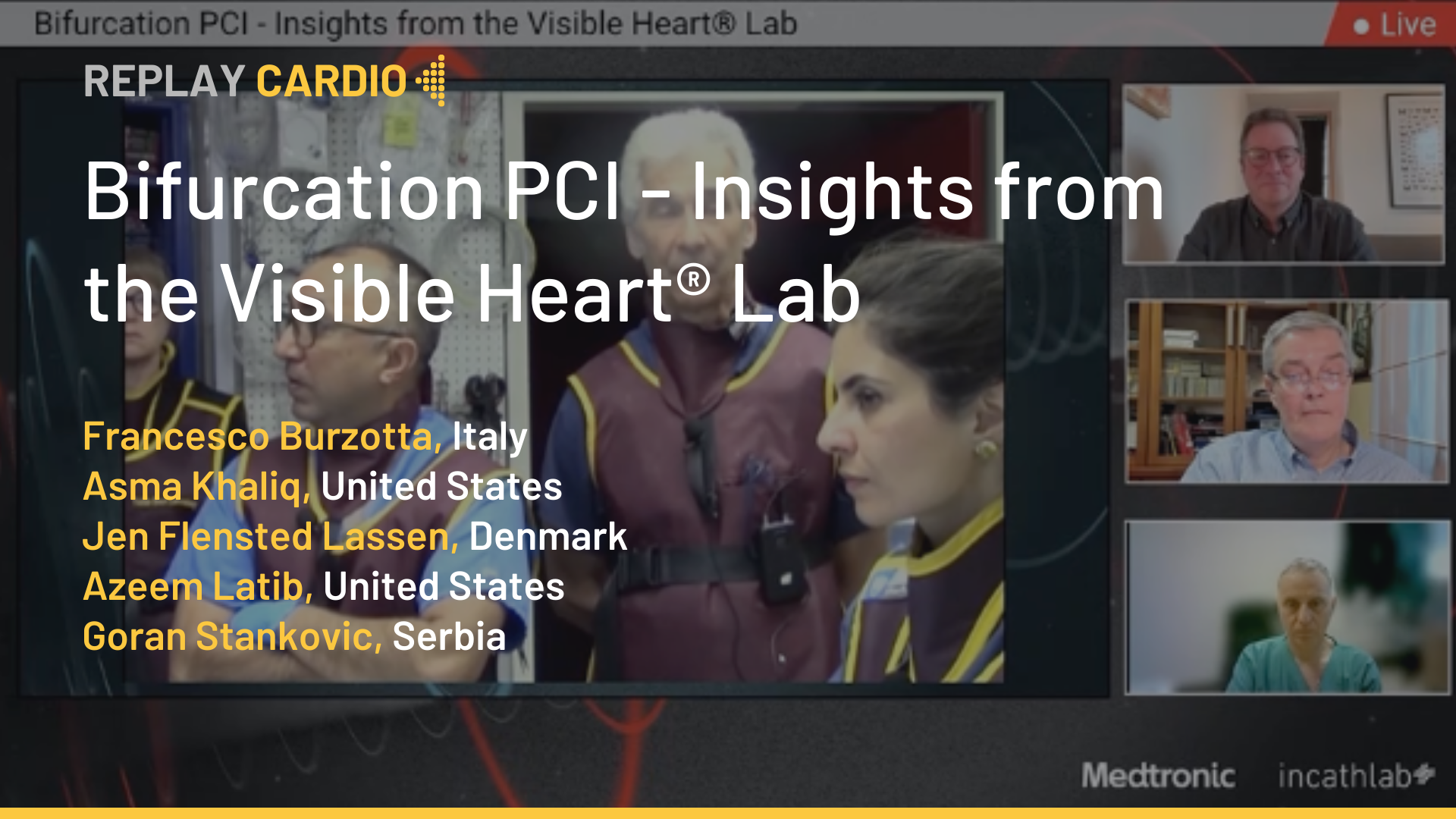
Become an Incathlab member and receive full access to its content!
Registration Login
Introduction
L'équipe de l'HEGP vous donne rendez-vous pour débattre de la stratégie de revascularisation autour de case-in box !
En 1977, A. Grüntzig lance la 1ère révolution du traitement interventionnel de la maladie coronarienne avec l'angioplastie par ballon (plain old balloon angioplasty). Cette POBA présente cependant plusieurs limites : le recoil, la resténose et surtout un risque d'occlusion aiguë par dissection. Et c’est initialement pour traiter cette complication liée à la dissection que va débuter la 2ème révolution de l’angioplastie : l’avènement du stenting, pour traiter en première intention tout type de lésion, chez tout type de patient. Cependant le stenting aura induit une complication propre, la thrombose de stent, augmentant d’autant le risque ischémique du patient.
Le ballon actif, utilisé depuis 2014 pour le traitement de la resténose intrastent, va progressivement s’ouvrir au traitement des lésions de novo, notamment dans les vaisseaux de petit calibre, validé par l’étude BASKET-SMALL 2.Les concepts de « leave nothing behind », de « stentless strategy », font alors leur apparition.
Cette stratégie de revascularisation sans stenting (No Stent Strategy, NSS) peut être privilégiée afin de faciliter la prise en charge pharmacologique de certains patients, ou de simplifier la revascularisation de certaines lésions dites complexes.
Au programme de cette session digitale
- Introduction
- Case-in-box 1 : Quand les stents vous compliquent la vie, Un choix discutable
- Case-in-box 2 : Être actif, mais au ballon !
- Case-in-box 3 : Après le ballon, savoir rebondir
- Case-in-box 4 : Avant le tout ballon, passons par l’hybride
- Back to the future : études en cours
- Questions et réponses
- Take home message
Objectifs d'apprentissage
Lors de cette session et à travers des discussions autours de case-in-box l’équipe de l’HEGP aura comme objectif de répondre aux différentes questions :
- Quelles sont les dernières données sur l’utilisation du ballon actif dans les lésions de novo?
- Quelles lésions ou quels patients pouvons-nous traiter avec le ballon actif ?
- Comment bien préparer la lésion dans l’objectif d’utiliser le ballon actif & bien évaluer les résultats angiographiques ?
- Quels types de dissection faut-il stenter ?
Last update : 2022-10-07
Suggestions
Where is my guidewire? Only IVUS knows - A story about an ambiguous RCA proximal cap
Alex & The Young Generation - Ep.10
Retry of an ostial LAD CTO, previous antegrade failure with Gaia family
Alex & The Young Generation - Ep.11
San Francisco : Monday, June 10th 2024 from 08am to 09am (GMT+2)
New York : Monday, June 10th 2024 from 11am to 12pm (GMT+2)
Buenos Aires : Monday, June 10th 2024 from 12pm to 01pm (GMT+2)
Reykjavik : Monday, June 10th 2024 from 03pm to 04pm (GMT+2)
London / Dublin : Monday, June 10th 2024 from 04pm to 05pm (GMT+2)
Paris / Berlin : Monday, June 10th 2024 from 05pm to 06pm (GMT+2)
Istanbul : Monday, June 10th 2024 from 06pm to 07pm (GMT+2)
Moscou / Dubaï : Monday, June 10th 2024 from 07pm to 08pm (GMT+2)
Bangkok : Monday, June 10th 2024 from 10pm to 11pm (GMT+2)
Shanghai : Monday, June 10th 2024 from 11pm to 12am (GMT+2)
Tokyo : Tuesday, June 11th 2024 from 12am to 01am (GMT+2)
Sydney : Tuesday, June 11th 2024 from 02am to 03am (GMT+2)
Wellington : Tuesday, June 11th 2024 from 04am to 05am (GMT+2)
L’OCT dans la resténose et thrombose de stent – il est temps d’allumer la lumière !
L’imagerie : un outil indispensable pour gérer les complications post-angioplastie
San Francisco : Thursday, September 22nd 2022 from 11:30pm to 07:10am (GMT+2)
New York : Friday, September 23rd 2022 from 02:30am to 10:10am (GMT+2)
Buenos Aires : Friday, September 23rd 2022 from 03:30am to 11:10am (GMT+2)
Reykjavik : Friday, September 23rd 2022 from 06:30am to 02:10pm (GMT+2)
London / Dublin : Friday, September 23rd 2022 from 07:30am to 03:10pm (GMT+2)
Paris / Berlin : Friday, September 23rd 2022 from 08:30am to 04:10pm (GMT+2)
Istanbul : Friday, September 23rd 2022 from 09:30am to 05:10pm (GMT+2)
Moscou / Dubaï : Friday, September 23rd 2022 from 10:30am to 06:10pm (GMT+2)
Bangkok : Friday, September 23rd 2022 from 01:30pm to 09:10pm (GMT+2)
Shanghai : Friday, September 23rd 2022 from 02:30pm to 10:10pm (GMT+2)
Tokyo : Friday, September 23rd 2022 from 03:30pm to 11:10pm (GMT+2)
Sydney : Friday, September 23rd 2022 from 05:30pm to 01:10am (GMT+2)
Wellington : Friday, September 23rd 2022 from 07:30pm to 03:10am (GMT+2)
Luzern Complex and Calcified PCI Workshop
miniLUCCA
San Francisco : Wednesday, April 2nd 2025 from 09am to 10am (GMT+2)
New York : Wednesday, April 2nd 2025 from 12pm to 01pm (GMT+2)
Buenos Aires : Wednesday, April 2nd 2025 from 01pm to 02pm (GMT+2)
Reykjavik : Wednesday, April 2nd 2025 from 04pm to 05pm (GMT+2)
London / Dublin : Wednesday, April 2nd 2025 from 05pm to 06pm (GMT+2)
Paris / Berlin : Wednesday, April 2nd 2025 from 06pm to 07pm (GMT+2)
Istanbul : Wednesday, April 2nd 2025 from 07pm to 08pm (GMT+2)
Moscou / Dubaï : Wednesday, April 2nd 2025 from 08pm to 09pm (GMT+2)
Bangkok : Wednesday, April 2nd 2025 from 11pm to 12am (GMT+2)
Shanghai : Thursday, April 3rd 2025 from 12am to 01am (GMT+2)
Tokyo : Thursday, April 3rd 2025 from 01am to 02am (GMT+2)
Sydney : Thursday, April 3rd 2025 from 03am to 04am (GMT+2)
Wellington : Thursday, April 3rd 2025 from 05am to 06am (GMT+2)
Le choix des armes contre les lésions calcifiées
Nouveaux outils pour la prise en charge de calcifications coronaires
San Francisco : Wednesday, November 23rd 2022 from 07am to 08am (GMT+1)
New York : Wednesday, November 23rd 2022 from 10am to 11am (GMT+1)
Buenos Aires : Wednesday, November 23rd 2022 from 12pm to 01pm (GMT+1)
London / Dublin : Wednesday, November 23rd 2022 from 03pm to 04pm (GMT+1)
Paris / Berlin : Wednesday, November 23rd 2022 from 04pm to 05pm (GMT+1)
Istanbul : Wednesday, November 23rd 2022 from 05pm to 06pm (GMT+1)
Moscou / Dubaï : Wednesday, November 23rd 2022 from 07pm to 08pm (GMT+1)
Bangkok : Wednesday, November 23rd 2022 from 10pm to 11pm (GMT+1)
Shanghai : Wednesday, November 23rd 2022 from 11pm to 12am (GMT+1)
Tokyo : Thursday, November 24th 2022 from 12am to 01am (GMT+1)
Sydney : Thursday, November 24th 2022 from 01am to 02am (GMT+1)
Wellington : Thursday, November 24th 2022 from 03am to 04am (GMT+1)
UNCAGE coronaries - Episode 3 : UNCAGE chronic total occlusions
San Francisco : Friday, February 17th 2023 from 02:30am to 04am (GMT+1)
New York : Friday, February 17th 2023 from 05:30am to 07am (GMT+1)
Buenos Aires : Friday, February 17th 2023 from 07:30am to 09am (GMT+1)
London / Dublin : Friday, February 17th 2023 from 10:30am to 12pm (GMT+1)
Paris / Berlin : Friday, February 17th 2023 from 11:30am to 01pm (GMT+1)
Istanbul : Friday, February 17th 2023 from 12:30pm to 02pm (GMT+1)
Moscou / Dubaï : Friday, February 17th 2023 from 02:30pm to 04pm (GMT+1)
Bangkok : Friday, February 17th 2023 from 05:30pm to 07pm (GMT+1)
Shanghai : Friday, February 17th 2023 from 06:30pm to 08pm (GMT+1)
Tokyo : Friday, February 17th 2023 from 07:30pm to 09pm (GMT+1)
Sydney : Friday, February 17th 2023 from 08:30pm to 10pm (GMT+1)
Wellington : Friday, February 17th 2023 from 10:30pm to 12am (GMT+1)
Coronary sinus reducer
San Francisco : Thursday, March 16th 2023 from 07am to 09:30am (GMT+1)
New York : Thursday, March 16th 2023 from 10am to 12:30pm (GMT+1)
Buenos Aires : Thursday, March 16th 2023 from 12pm to 02:30pm (GMT+1)
London / Dublin : Thursday, March 16th 2023 from 03pm to 05:30pm (GMT+1)
Paris / Berlin : Thursday, March 16th 2023 from 04pm to 06:30pm (GMT+1)
Istanbul : Thursday, March 16th 2023 from 05pm to 07:30pm (GMT+1)
Moscou / Dubaï : Thursday, March 16th 2023 from 07pm to 09:30pm (GMT+1)
Bangkok : Thursday, March 16th 2023 from 10pm to 12:30am (GMT+1)
Shanghai : Thursday, March 16th 2023 from 11pm to 01:30am (GMT+1)
Tokyo : Friday, March 17th 2023 from 12am to 02:30am (GMT+1)
Sydney : Friday, March 17th 2023 from 01am to 03:30am (GMT+1)
Wellington : Friday, March 17th 2023 from 03am to 05:30am (GMT+1)

